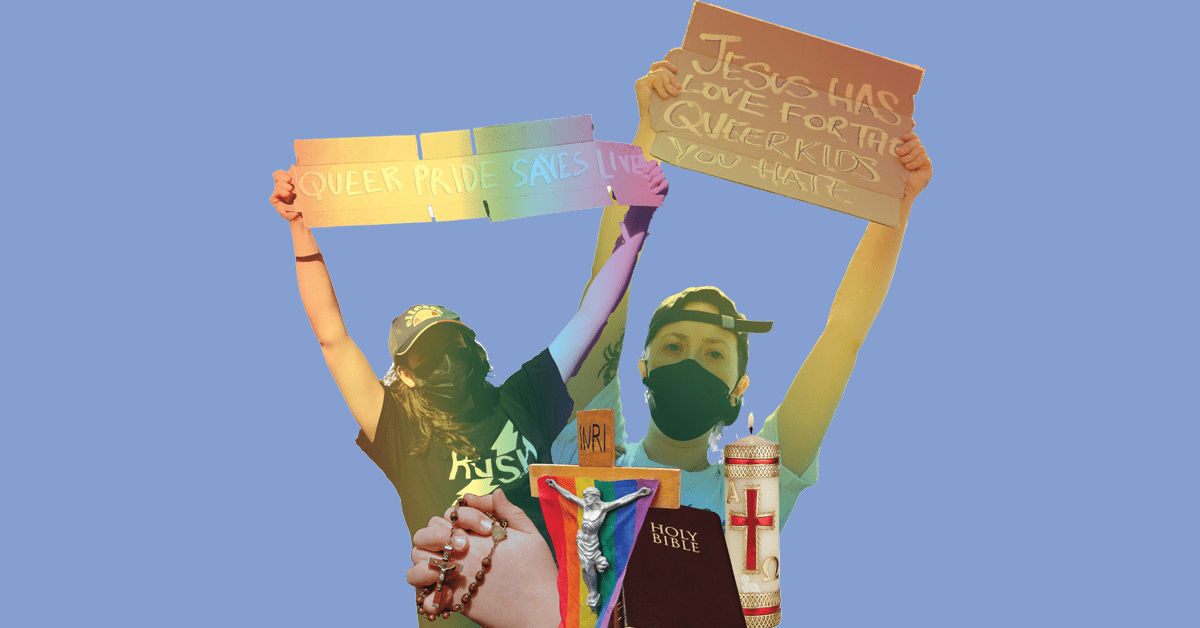In late 2018, my high school was diverted from our normal timetables and brought into the hall. We were quite confused — no one had said why, so we half-expected an intervention about vaping or phones or proper jewellery rules. At the time, Australia had recently voted yes to legalise same-sex marriage and conservatives were claiming that this was a slippery slope towards ‘discrimination’ against religious people, with a whirlwind of legislation, talking points, and an expert review weighing into the culture war.
For about an hour, a few teachers spoke to us about the importance of their ability to hire exclusively religious teachers and have the freedom to legally discriminate “to avoid injury to…religious susceptibilities” as the Sex Discrimination Act puts it. It felt odd — we weren’t of voting age and politicians had little motivation to win us over.
The reason became clear towards the end as the teachers asked us to pray together. To pray for their right to discriminate against prospective teachers for their religious beliefs and sexual orientations — I suppose God might favour them if they sent enough prayers all at once. And with teachers often punitively enforcing the closing of eyes and bowing of heads during prayer times, I had no choice but to pretend to pray.
The meeting caused a stir amongst some progressive parents who contacted the school to voice their complaints. So much so that a friend of mine, who was asked to film the event by teachers, was approached to delete the recording. Another student also told Honi that they believed the quiet departure of a teacher who came out as queer was linked to the strange assembly.
It sent a very clear message — we would never hire anyone like you. How can a school possibly strive to nurture young people when they refuse to represent the diversity within the student body? How can queer students feel comfortable coming to teachers about bullying or hardships at home when not one of the staff has that lived experience?
By no means do I mean to denigrate religiosity — I’ve met amazing people of faith who have treated me with uncompromising acceptance — but the problem with many religious schools is their insistence on hiring teachers from a strictly heterosexual, conservative background.
This leads to homophobia in the classroom, in the schoolyard, and in education, making queer students feel perpetually othered and alone at a time when a supportive environment is so incredibly important.
This led to silence. Barely any conversations were had by the school about queerness, and if they were, it was debating the morality of it or walking on eggshells around ‘difficult topics’ such as the mere existence of trans students. Through this, they failed to educate anyone, including queer students, on the real world beyond the school gates.
Evelyn, a trans man who attended high school in Jindabyne, told Honi that “they … ignored [our] existence, it’s like they wouldn’t say the word gay.”
Although in private some teachers supported him, Evelyn was told not to attend male-only assemblies or classes out of fear of making students “uncomfortable” — continuing the veil of silence out of fear of challenging religious worldviews. “Looking back,” he said, “I didn’t get sad, I got angry [and] became really defensive.”
“If I didn’t know the facts, if I wasn’t defensive, people could actually hurt me.”
The need to have a constant guard up was a common experience for me too, wondering if a group of boys would call me “faggot” like they’d done in the past. Or dreading our mandatory Christian Studies class that would sometimes discuss homosexuality and its place — or lack thereof — in religion and, by extension, the school.
“No one should ever act on homosexual thoughts,” I remember one student saying, “It’s sinful and not normal,” another added while the teacher nodded. The same teacher later heavily implied that gay people go to hell through his urgent call for the class to pray for homosexual people to give them “eternal life.”
Ella, a trans woman who grew up in an all-boys Anglican school in Sydney had a similar experience, telling Honi that “[the teachers] would cover themselves with as many caveats as possible [such as] ‘people can live how they want,’ and ‘we don’t have anything against being gay’” but then explained that “if you engage in that lifestyle, you will be sent to hell.”
“People need to be taught what queer is. [If] at any point when I was growing up I had been told what being trans is, and been given the opportunity to dress … and present how I want, it would have changed my life.”
She mentioned how the school would never outright attack queer people, however, “they created a culture where people didn’t feel open to express themselves in regards to their sexuality and gender.”
This complete lack of education and representation in schools has led to wild misunderstandings and the dehumanisation of queer people. It is a pain that many go through, with Ella telling Honi that her gender dysphoria led to nearly 15 years of depression until shortly after she transitioned.
While every queer person raised in a religious school has a different experience of how it impacted them, for better or worse, many of us still grapple with the lasting impacts those environments had on us. The shame that teachers taught and some students reinforced have led me to years of internalised homophobia, guilt, and self-hatred over my queerness — something that I know many people like me have, or still are dealing with as a result of terrible school environments.
Only after completely severing myself geographically and socially from my past self have I been able to truly accept my identity proudly and guilt-free.





